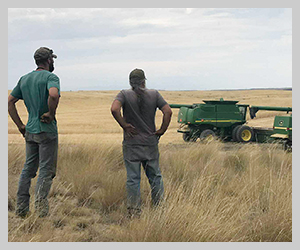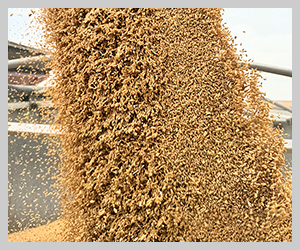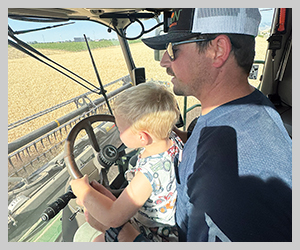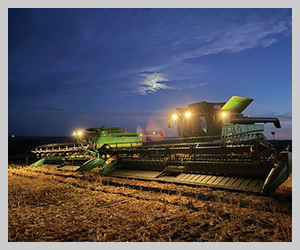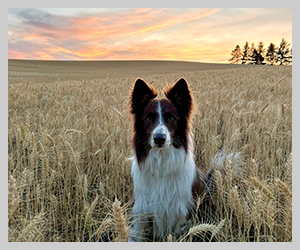Research on my mind
2025March 2025
By Jeff Malone
President, Washington Association of Wheat Growers
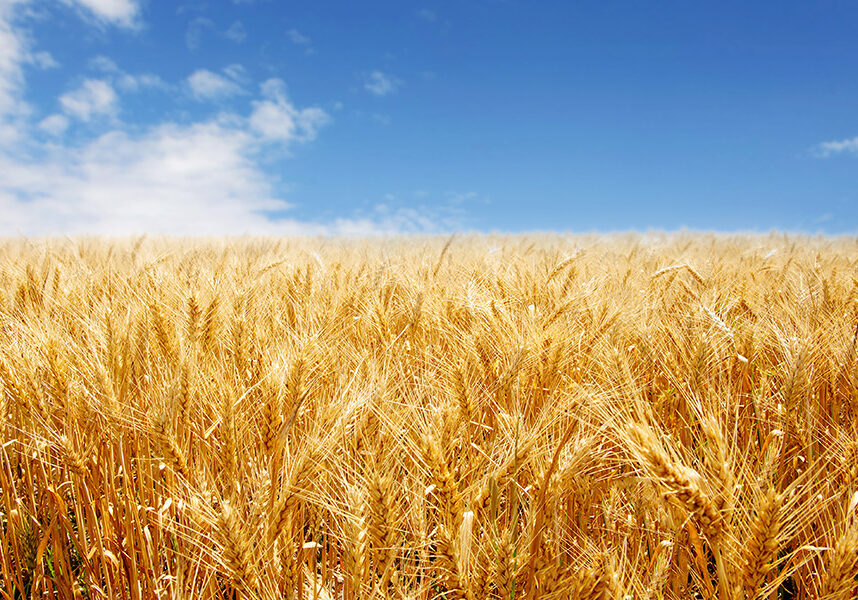
There’s just a lot going on these days in agriculture. Between all the new advances in technology, chemistry, biologicals, spending money, and worrying, I find that my mental dance card is a bit full! This month I’d like to highlight one particular aspect of our industry that will either fill you with excitement or make you think about watching paint dry — research. Like it, love it, or leave it, research is the cornerstone upon which all advances in our modern era have been based. The complex dance of research, how it is proposed, funded, and deployed, is a bit extensive. But it is safe to say that nearly everything we do today on our farms is because of it, and many mouths are fed here at home and abroad thanks to it.
Since its inception in 1958, the Washington Grain Commission has supported research at Washington State University (WSU) and the U.S. Department of Agriculture’s Agricultural Research Service (USDA ARS). Every year, the commission’s research review gives growers a chance to look at the current status of ongoing projects and give their opinions on the direction of future development. Mary Palmer Sullivan has been a central figure in organizing the review, communicating with researchers, and advocating successfully for research dollars during her 3 decades with the commission. I’d like to personally thank her for her continued tireless work on our behalf.
The list of folks working on all this is longer than I can probably list here. But as wheat farmers, we all look to WSU researchers like Mike Pumphrey, Arron Carter, Ian Burke, and others with admiration and, sometimes, panic as they work to help us meet the needs and challenges of the future. We also need to recognize WSU Extension and the folks there for their tireless efforts to keep us all going.
The Washington Association of Wheat Growers (WAWG) also has a role in promoting research and lobbying for funding. Retired WSU College of Agricultural, Human, and Natural Resource Sciences Associate Dean for Research, Jim Moyer, currently serves as chair of WAWG’s Research Committee.
With all of these people, projects, and problems, we’ve still barely scratched the surface of all this. So where do we, the farmers, fit in? Well, despite what I’d like to think, complaining about things doesn’t count. What all of these hardworking people need is your participation. It is extremely important that your voice is heard as WSU, USDA, the WGC, and WAWG grapple with decisions regarding where to spend your assessment dollars, and what projects to advocate for for federal funding. We need farmers to attend field days, variety trials, and wheat college. There is nothing more discouraging to researchers than no one showing up to learn and give input. Not only does it help them, but we need to be outstanding in our fields while we are out … standing in our fields, and all of this helps us accomplish that. Every single variety of wheat, crop protection product, and fertilizer I use is because someone worked hard to develop it. If I could have a chance to provide input on what would work best on my farm, why wouldn’t I do it!
The future of Washington Wheat has many challenges — most of which we don’t even know yet — and we are going to need a healthy and robust research community working to address them. So, let’s take the opportunities afforded to us to help! Give encouragement, input, constructive criticism even, but most importantly, give of your time. The future is counting on it.





